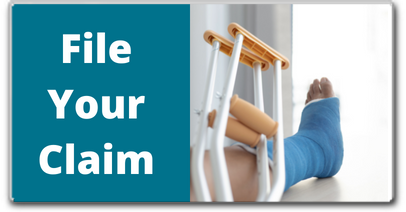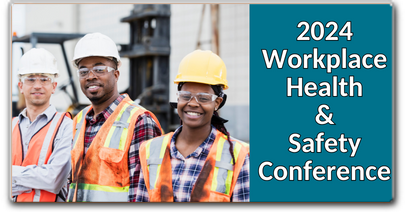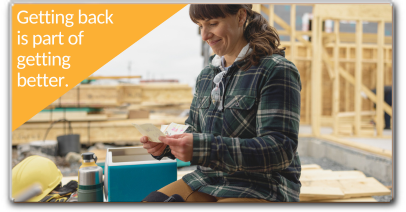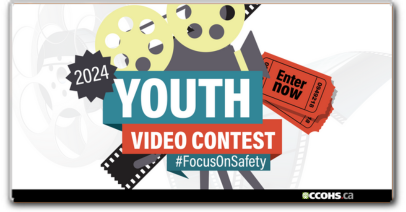Workers Compensation Board of Prince Edward Island
When people feel valued, respected, and satisfied in their jobs and work in safe, healthy environments, they are likely to be more productive and committed to their work. This approach is the foundation for successful work disability prevention when a worker is injured or ill.
Work disability occurs when a worker is unable to remain at work or return to work due to an injury or illness.
The longer an injured worker is away from the workplace, the more complex their recovery can become. Workers who stay at work doing modified, transitional, or accommodated work following a workplace injury recover more quickly.
Of course, some workers may need time away from work as part of their recovery. They may have serious injuries requiring hospitalization or surgery, psychological injury as a result of exposure to trauma, or a need for frequent and complex medical treatments. Even in these cases, returning to work in some capacity as soon as possible helps with recovery and overall health and wellness.
Some options for RTWP’s include a gradual increase in hours over a period of time, transitional or modified duties, identification of other suitable work, work conditioning, or a multi-disciplinary program to build strength and stamina in conjunction with a transitional return to work plan. The plan is individualized to each worker. Using a team approach, RTWP’s are designed specifically around the workers abilities and the kind of work that is available. This process can be enhanced by an employer having an existing WDDP and can make return to work safer and more timely. The most successful RTWP’s involve the worker losing as little time away from work as possible.
Employers, workers, and health care providers have a responsibility to facilitate safe and timely return to suitable and available work. Return to work planning is a team effort.
Work & Recovery
When people feel valued, respected, and satisfied in their jobs and work in safe, healthy environments, they are likely to be more productive and committed to their work. This approach is the foundation for successful work disability prevention when a worker is injured or ill.
Work disability occurs when a worker is unable to remain at work or return to work due to an injury or illness.
Work Disability Prevention
Work Disability Prevention is any workplace activity or organizational program or policy designed to support injured or ill workers remaining at work. Some people believe that being away from work after an injury or illness can decrease stress and promote healing, however, evidence supports that recovering at work is better for most workers.Returning to Work
Returning to work is more than just getting back to work, it’s getting back to being you. Getting back is part of getting better.The longer an injured worker is away from the workplace, the more complex their recovery can become. Workers who stay at work doing modified, transitional, or accommodated work following a workplace injury recover more quickly.
Of course, some workers may need time away from work as part of their recovery. They may have serious injuries requiring hospitalization or surgery, psychological injury as a result of exposure to trauma, or a need for frequent and complex medical treatments. Even in these cases, returning to work in some capacity as soon as possible helps with recovery and overall health and wellness.
Return to Work Plans
Return to Work Plans (RTWP) are an important part of a Work Disability Prevention Program (WDPP). Within a WDPP, generic plans are developed based on the key job functions for each job or group of jobs. This is a solid starting point that can be individualized to meet the needs of a recovering worker, based on limitations and restrictions. Having these generic plans in place also helps you meet the return to work requirements in the Workers Compensation Act.Some options for RTWP’s include a gradual increase in hours over a period of time, transitional or modified duties, identification of other suitable work, work conditioning, or a multi-disciplinary program to build strength and stamina in conjunction with a transitional return to work plan. The plan is individualized to each worker. Using a team approach, RTWP’s are designed specifically around the workers abilities and the kind of work that is available. This process can be enhanced by an employer having an existing WDDP and can make return to work safer and more timely. The most successful RTWP’s involve the worker losing as little time away from work as possible.
Employers, workers, and health care providers have a responsibility to facilitate safe and timely return to suitable and available work. Return to work planning is a team effort.









